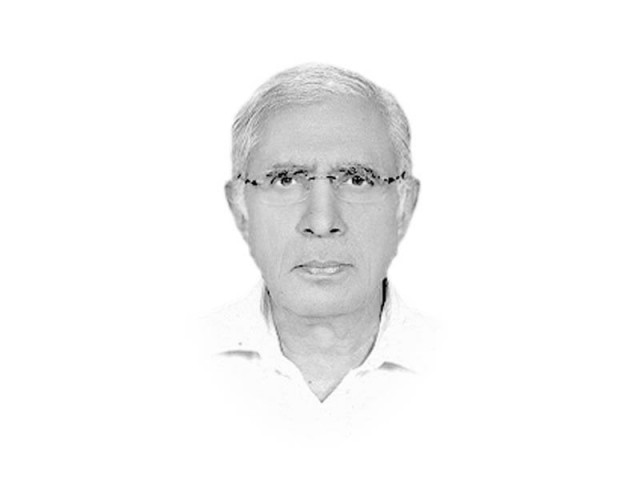Afghanistan is no Vietnam
US itself appears to have been swamped by an acute sense of frustration

The writer served as executive editor of The Express Tribune from 2009 to 2014
The Soviets disappeared from the face of the earth, because of their Afghan folly which was the last straw on the camel’s already snapped back.
On the other hand, the US seems to be facing a Vietnam-like situation in Afghanistan without, however, facing a similar end-game because no one in the world wants Washington to fail in this war against terrorism.
But the US itself appears to have been swamped by an acute sense of frustration. In a recent article (How Pakistan Warped into a Geopolitical Monster) published in an US magazine The National Interest, on April 2, 2017 author Robert Cassidy maintains that after 15-plus years, the war in Afghanistan remains a strategic stalemate.
“The coalition and Afghan forces have hit the enemy’s capacity year after year, but the Taliban’s will — their senior leaders, support, resources, rest, regeneration and arms — continue to benefit from sanctuary and support from Pakistan’s security establishment. In his testimony to the Senate Armed Services Committee in February of this year, the theatre commander, Gen John Nicholson, stated that he believed the war in Afghanistan was a stalemate.”
Most official US reports and testimonies on the situation in Afghanistan, according to Mr Cassidy, explicitly state, for the public record, that Pakistan’s sanctuary and support prevent the defeat of the Taliban.
“A reduction of this sanctuary and cessation of the sources of support for the Taliban in Pakistan is the strategic sine qua non for ending the war in Afghanistan with modest success.
“General Nicholson has told the Senate Armed Services Committee in February that multiple witnesses have appeared before this body and testified that insurgents cannot be defeated while they enjoy external sanctuary and support from outside of the national boundaries of the conflict area.
“Pakistan continues to pose a grave strategic risk for the war in Afghanistan. This war will not end, or it will end badly, unless the West and its regional partners bring the full weight of their collective national powers to break Pakistan of its pathological strategic behaviour.”
Further quoting General Nicholson, Mr Cassidy said that 20 US-designated terrorist organisations operate in the Afghanistan-Pakistan sub-region; seven of the 20 organisations are in Pakistan. “So long as these groups maintain safe haven inside of Pakistan they will threaten long-term stability in Afghanistan.”
One recalls that similar analyses were pouring out of US think tanks, its media and strategic experts when the war in Vietnam was going the wrong way for Washington. Many had started accusing the neighbouring Cambodia of harbouring the Vietcong and providing them sanctuaries and then in desperation that country was bombed.
This leads one to the dangerous conclusion that perhaps the US is mistaking the Afghan war as some kind of a repeat of its Vietnam experience.
The Soviets moved into Afghanistan determined to turn it into a socialist country without realising that you cannot impose socialism on a tribal society which Afghanistan was at that time and still is. The US has been trying futilely to introduce democracy in a country warped up in tribalism.
Not that Pakistan is free from tribalism. It is afflicted with feudalism as well. Most of rural Pakistan is tribal and large parts of urban region are immersed in feudalism. In such societies the writ of state continuously comes into direct clash with the obscure cultural norms.
That is perhaps why non-state militant organisations could thrive with total impunity in Pakistan and Afghanistan. So, instead of blaming Pakistan for Washington’s Afghan problems the US should re-read the cultural ground reality in Afghanistan and empathetically manage to lift it out of its tribal pit rather than trying to force democracy down its throat.
Published in The Express Tribune, April 8th, 2017.
Like Opinion & Editorial on Facebook, follow @ETOpEd on Twitter to receive all updates on all our daily pieces.















COMMENTS
Comments are moderated and generally will be posted if they are on-topic and not abusive.
For more information, please see our Comments FAQ